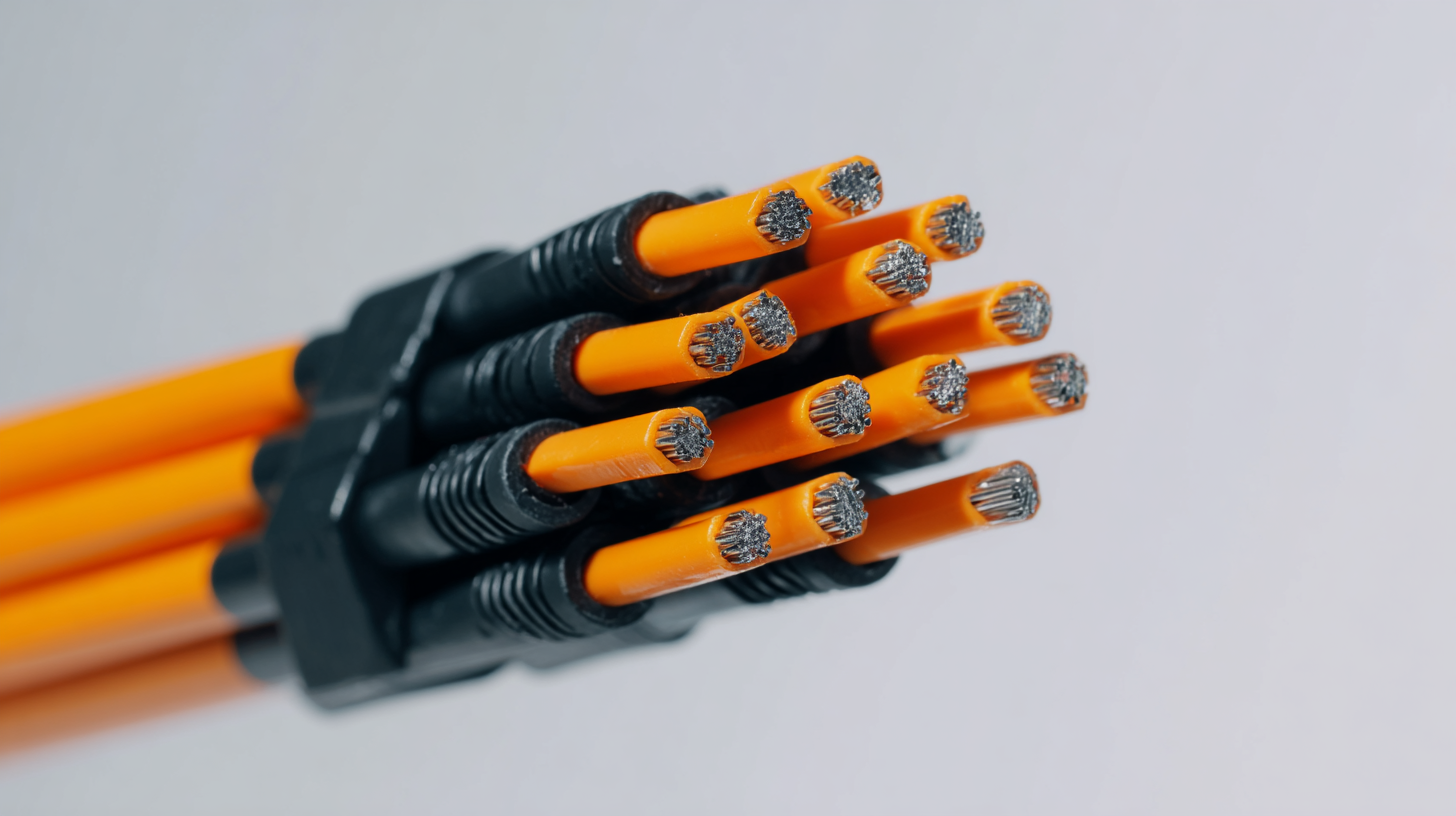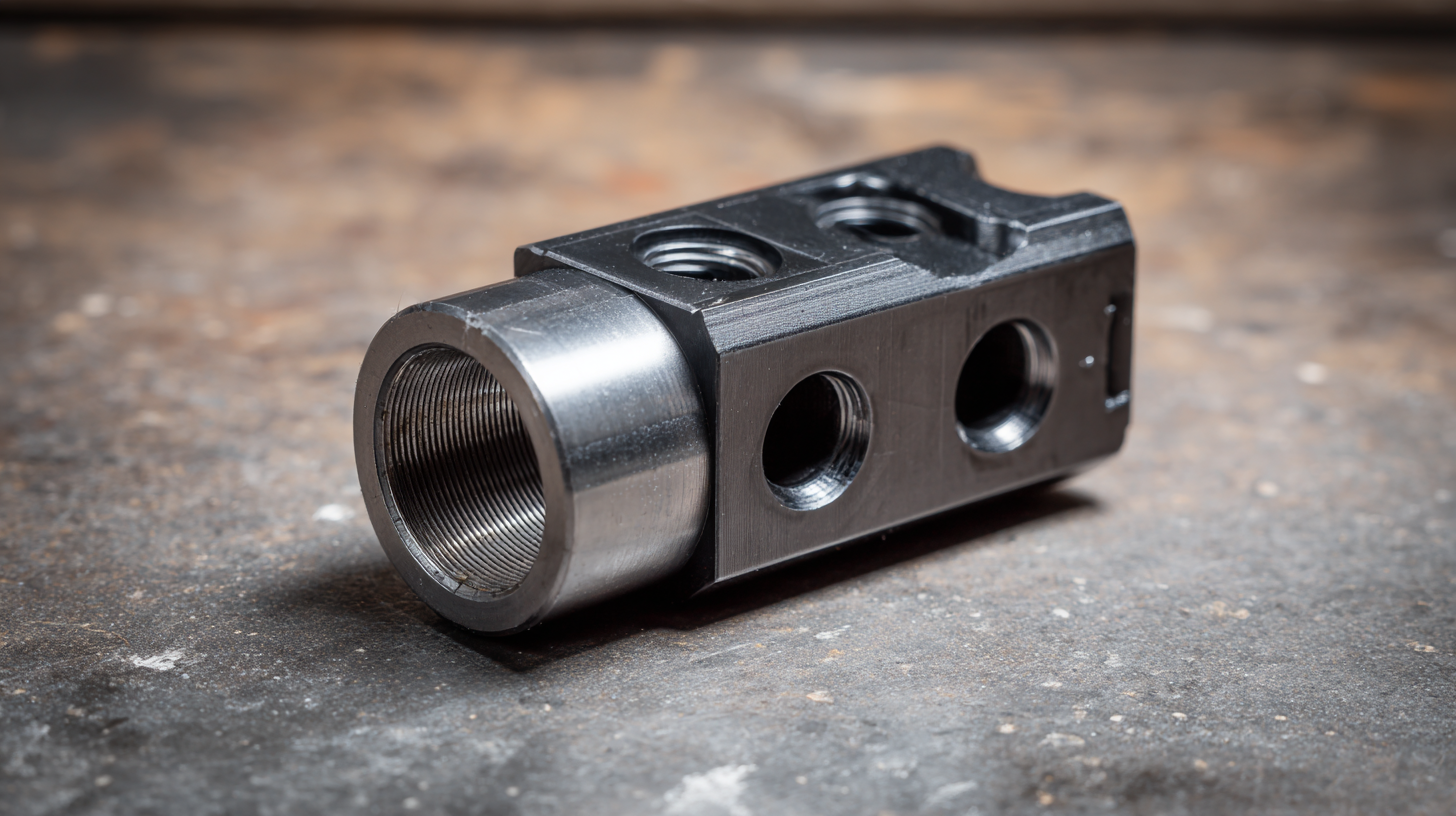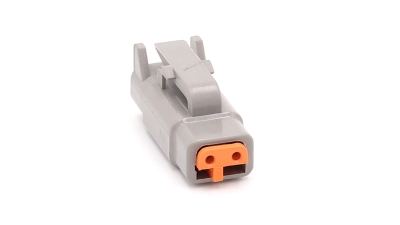Essential Guide to Choosing the Right Clip Connector: Boosting Efficiency in Industrial Applications
Table of Contents
- Understanding the Basics: What is a Clip Connector and Its Importance in Industry
- Key Factors to Consider When Selecting a Clip Connector for Your Application
- Types of Clip Connectors: Exploring Options for Various Industrial Needs
- Benefits of Using the Right Clip Connector: Enhancing Efficiency and Safety
- Common Mistakes to Avoid When Choosing a Clip Connector for Your Project
- Unlocking Efficiency: How the DTM06-2S Automotive Connector Meets the Growing Demand for High-Performance Electrical Systems in Vehicles
- FAQS
- Conclusion
- Related Posts
Picking the right clip connector? Yeah, it's a pretty big deal. It can seriously impact how smooth and reliable your industrial setups are. At Yueqing Xulian Electronics Co., Ltd., we're a high-tech company that takes pride in not just making stuff, but also in our R&D. We totally get how important it is to choose the perfect connectors for different environments. With our wide range of products—think automotive connectors, ECU connectors, terminals, wiring harnesses—we’ve got something for pretty much every industry need.

This little guide is here to walk you through the main things to think about and tips for choosing the best clip connector. Trust me, picking the right one can help boost your productivity and make everything run a lot smoother. So, let’s dive into why clip connectors are actually pretty crucial when it comes to pushing industrial innovation and keeping things efficient.
Understanding the Basics: What is a Clip Connector and Its Importance in Industry
Clip connectors might not be something you hear about every day, but trust me, they’re pretty important when it comes to industrial setups. Basically, they’re the go-to components for making solid electrical connections. Without them, transmitting power and signals wouldn’t be as smooth, which could seriously impact how well everything runs—and safety is, of course, a big deal. I recently came across a report by Research and Markets that predicts the global connector market will hit around $74.2 billion by 2027. That shows just how much people are relying on effective connecting solutions like clip connectors these days.
Picking the right clip connector really can make a difference in how smoothly things operate. When you’re choosing one, think about things like how much current it needs to handle, the environmental conditions it’ll be exposed to, and what materials it’s made from. For example, connectors crafted from top-notch materials tend to last longer and resist corrosion better—which means less fuss and fewer replacement costs down the line. And don’t forget, it’s always smart to check that your connector meets industry standards—that way, you’re ensuring both good performance and compliance.
**A few pro tips:**
1. **Double-check compatibility:** Before you commit, make sure the connector plays nicely with your existing system—trust me, nothing’s worse than scrambling to fix an incompatible part.
2. **Mind the temperature ratings:** Pick a connector rated for the temps you’ll actually be operating in—to keep things running smoothly and avoid surprises.
3. **Go for quality:** It’s worth investing in well-made connectors from reputable brands. It might cost a bit more upfront, but it’ll save you headaches and downtime in the long run.
Essential Guide to Choosing the Right Clip Connector: Boosting Efficiency in Industrial Applications
| Connector Type | Material | Current Rating (A) | Voltage Rating (V) | Operating Temperature (°C) | Application |
|---|---|---|---|---|---|
| Standard Clip Connector | Copper Alloy | 15 | 250 | -40 to 105 | General Purpose |
| High Voltage Clip Connector | Nickel-Plated Brass | 10 | 600 | -20 to 125 | Power Distribution |
| Heavy Duty Clip Connector | Stainless Steel | 25 | 500 | -50 to 150 | Industrial Machinery |
| Waterproof Clip Connector | Plastic (Polyamide) | 5 | 24 | -40 to 85 | Outdoor Applications |
Key Factors to Consider When Selecting a Clip Connector for Your Application
Picking the right clip connector for industrial use isn't just a technical choice—it's pretty much essential for keeping things running smoothly. You wanna look at a few key things, like what materials the connector's made of, the electrical ratings it can handle, and the environment it'll be working in. I read somewhere that the global market for these connectors is expected to crack $75 billion by 2027—that just shows how vital reliable connections are in industry stuff. The materials matter too; using high-quality metals can make a huge difference—these connectors can handle higher temperatures and resist corrosion, which is a lifesaver in tough environments.
Another thing to keep in mind is whether the connector will play nice with your existing setup. According to a report from Mordor Intelligence, about 45% of industrial failures come down to bad connectivity—that’s a pretty big chunk. So, double-checking the electrical specs is super important—it needs to match the load your machinery needs. And don’t forget about the physical side of things—figuring out the right size and mounting style can save you a lot of hassle during installation. Basically, doing your homework here means fewer breakdowns, less downtime, and better overall productivity.

Types of Clip Connectors: Exploring Options for Various Industrial Needs
When it comes to industrial setups, choosing the right clip connector really matters if you want things to run smoothly. With so many types out there, it’s super important to understand what each one does, so you can pick the best fit for your specific needs. For example, lately, there’s been a big surge in demand for tough, reliable clip connectors — all thanks to the booming automation market, which, by the way, is expected to hit around $200 billion by 2026, according to MarketsandMarkets. That kind of growth just shows how crucial it is to have connectors that can handle rough environments without breaking a sweat.
One type that’s really coming into focus is the spring-loaded clip connector. These are great because they stay secure even when there’s vibration or thermal expansion — which is a massive plus in industries like automotive or aerospace where equipment gets jolted around a lot. On top of that, insulated clip connectors are also gaining popularity because they help prevent short circuits and overloads. This is super important when safety is a big deal. Research from MarketsandMarkets says the electrical safety market is growing by over 7% each year, which just goes to show how much everyone’s paying attention to safe, reliable connections across all kinds of industrial operations.

Benefits of Using the Right Clip Connector: Enhancing Efficiency and Safety
Picking the right clip connector is super important when it comes to industrial stuff — it really impacts both how smoothly things run and how safe everything is. When you've got the correct connector, it snugly and reliably holds everything together, which means fewer worries about failures in critical systems. That kind of dependability actually helps keep things running smoothly, cutting down on both downtime and repair costs. Plus, using the right clip can make assembly less of a headache, making installing and adjusting stuff way easier and faster.
And honestly, the safety perks are a big deal too. A properly fitted clip connector can totally prevent electrical shorts and mechanical breakdowns, which could otherwise cause accidents or damage expensive equipment. When connections are solid and stable, it’s not just the machinery that benefits — it’s everyone working around it. Knowing that your equipment is securely connected gives a real peace of mind, making the workplace a safer place overall. That sense of security can also boost worker morale and productivity, which is a nice little bonus.
Common Mistakes to Avoid When Choosing a Clip Connector for Your Project
When you're picking out a clip connector for your industrial project, it’s super important to watch out for some common pitfalls that can really mess with performance and efficiency. One thing folks often forget is taking into account the actual environment where the connector’s gonna be used. Things like temperature swings, moisture, or exposure to chemicals can seriously impact how long it lasts and how reliable it is.
Here’s a tip: Always check the environmental rating of the connectors and go for ones that are built for the specific conditions you'll be working with.
Another often-overlooked mistake is not paying attention to whether the connector is compatible with the materials you're joining. Using a clip connector that doesn’t really match the material can lead to weak mechanical connections or bad electrical conductivity. This kind of slip-up doesn’t just hurt efficiency — it could even cause your whole setup to fail.
Here’s a tip: Do some thorough compatibility testing with your materials before you lock in your final choice for the connector. If you keep these things in mind, you’ll end up with a more dependable and efficient setup overall.
Efficiency in Choosing Clip Connectors for Industrial Applications
Unlocking Efficiency: How the DTM06-2S Automotive Connector Meets the Growing Demand for High-Performance Electrical Systems in Vehicles
In today's fast-paced automotive industry, the demand for high-performance electrical systems in vehicles has never been higher. The DTM06-2S automotive connector is designed to meet this demand, offering a reliable and efficient solution for modern automotive applications. With its two-pin configuration, this connector ensures a secure and stable connection, which is essential for optimal vehicle performance.
Crafted from high-quality materials such as PBT+G and PA66+GF for the housing, along with copper alloy, brass, and phosphor bronze terminals, the DTM06-2S connector is built to withstand challenging environments. While flame retardancy can be customized, the focus remains on creating a robust connector that can endure the rigors of automotive use. Its female configuration allows for easy integration into various electrical systems, making it a versatile choice for manufacturers looking to enhance their vehicles' reliability.
As the automotive market evolves, the role of effective electrical connections becomes increasingly critical. The DTM06-2S connector not only supports improved functionality but also contributes to overall vehicle safety by providing a dependable connection. This highlights the importance of investing in high-quality components that can adapt to the growing needs of high-performance vehicles, ensuring that they meet both consumer expectations and regulatory standards.
FAQS
: Important factors include the type of materials used, current and voltage ratings, environmental conditions, compatibility with existing systems, and understanding physical dimensions and mounting styles.
The material affects durability and life expectancy; high-quality metals can withstand greater temperatures and resist corrosion, which is essential in harsh environments.
Poor connectivity can lead to industrial failures; assessing electrical ratings and ensuring compatibility can help avoid these issues and improve operational efficiency.
The global market for connectors is projected to exceed $75 billion by 2027.
Spring-loaded clip connectors are particularly beneficial in industries like automotive and aerospace, where equipment is subjected to vibration and thermal expansion.
Insulated clip connectors provide protection against short-circuiting and electrical overloads, enhancing safety in high-stakes industrial environments.
The demand for robust clip connectors is rising, driven by the rapid growth of the automation market, projected to reach $200 billion by 2026.
The electrical safety market is expected to grow by over 7% annually, emphasizing the importance of secure and efficient connections in industrial operations.
Assessing electrical ratings ensures that the connector can handle the specific load requirements of the machinery being used, preventing potential failures.
The right clip connector enhances operational efficiency by reducing downtime, avoiding compatibility issues, and ensuring reliable connectivity in industrial applications.
Conclusion
When it comes to the industrial world, picking the right clip connector really matters—it's key for keeping things running smoothly and safely. Honestly, getting to know the basics about these connectors and why they matter is super important because they’re involved in so many different applications. When you're choosing one, don’t forget to think about things like whether it’s compatible with your setup, how tough it is, and how it’ll hold up in tough environmental conditions—that way, you’re more likely to end up with something that actually works for your specific needs.
Yueqing Xulian Electronics Co., Ltd. has a solid selection of high-quality clip connectors, plus automotive connectors and wiring harnesses, all designed to boost performance. If you know what to watch out for when picking your connectors and choose the right ones, you can really improve efficiency and safety across your projects. It might seem like small stuff, but these choices make a big difference in the long run.
Related Posts
-

Unleashing Global Potential with Premium Wire End Connectors from China
-

How China Manufacturing Thrives Amidst US China Tariffs with Best 2 Pin Wire Connectors
-

Unveiling China’s Manufacturing Excellence: Your Gateway to the Best Electrical Terminals Globally
-

Elevating Global Standards: The Rise of Best OEM Automotive Manufacturing in China
-

Ultimate Guide to Choosing the Right Connector Cable for Your Industrial Needs
-

China's Premier Export of Best Wire Pin Connectors Leading the Global Market
Blog Tags:


